Explore the details of shipping goods from China to Djibouti, focusing on prices, paths, documents and ways to manage the process. Guidebook with detailed information for importers and exporters by 2025.
Understanding China-Djibouti Trade Relations
Historical Development and Strategic Importance
Starting out as simple trade between China and Djibouti, the partnership has grown into a major strategic connection that generates huge amounts of money each year. Because Djibouti is close to the Red Sea, it facilitates trade in Chinese goods to Africa and China is now the country’s largest investor and top trading partner.
Ongoing Momentum After Djibouti Joined China’s BRI, Putting It At The Heart Of The Maritime Silk Road Because of this relationship, there have been large investments in infrastructure like ports, railways and free trade zones which help goods move between the countries faster.
Current Trade Volume and Market Dynamics
China now trades with Djibouti widely, mainly exporting machines, electronics, textiles, construction materials and goods for consumers. Because Djibouti helps transport goods to Ethiopia, Somalia, Eritrea and many other landlocked nations, its trade volume goes up each year.
Port Infrastructure: The Foundation of China-Djibouti Shipping
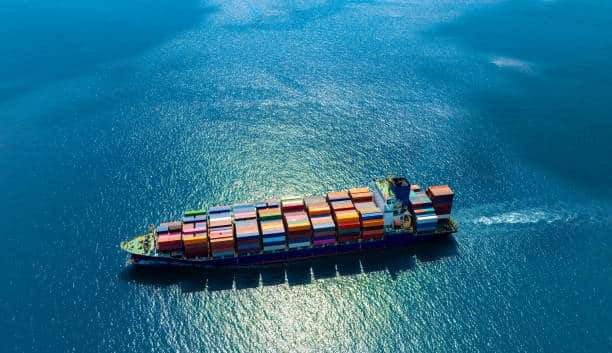
Major Chinese Ports Serving Djibouti Routes
Djibouti gets the majority of its shipments from important Chinese ports.
Shanghai Port The modern and efficient Shanghai Port is the biggest connector, running several weekly routes to Djibouti with strong support services. Being the biggest container port, Shanghai offers shippers access to many shipping lines and good freight rates.
Guangzhou Port Manufacturers in South China, especially, rely on Guangzhou Port as a major hub. Being close to markets and having advanced services makes the port appealing to those who wish to export to Djibouti.
Ningbo-Zhoushan Port, Djibouti is well linked to Ningbo-Zhoushan Port, China’s most active cargo port, by reliable rail and road services to key areas for production.
Shenzhen Port and Qingdao Port Shenzhen Port and Qingdao Port both serve regular routes and Shenzhen is mainly known for its electronics and consumer goods, while Qingdao handles lots of machinery and industrial equipment.
Djibouti’s Port Infrastructure
The ports in Djibouti have seen major development because of Chinese funds and experience. The most noteworthy aspect of the development is the Doraleh Multi-Purpose Port which is outfitted with current container handling tools and well-equipped logistics facilities.
The Doraleh Container Terminal, China Merchants Port Holdings operates the Doraleh Container Terminal which can handle giant container ships and is a significant transshipment point for the area. Because of advanced technology and good operations, vessels are spending less time at the terminal. The Djibouti International Free Trade Zone, Staff and infrastructure provided by the Free Trade Zone, funded with help from China, allow Chinese exporters to ease customs and use warehouses and value-added services when serving African markets.
The Doraleh Container Terminal, China Merchants Port Holdings operates the Doraleh Container Terminal which can handle giant container ships and is a significant transshipment point for the area. Because of advanced technology and good operations, vessels are spending less time at the terminal.
The Djibouti International Free Trade Zone, Staff and infrastructure provided by the Free Trade Zone, funded with help from China, allow Chinese exporters to ease customs and use warehouses and value-added services when serving African markets.
Shipping Methods and Service Options
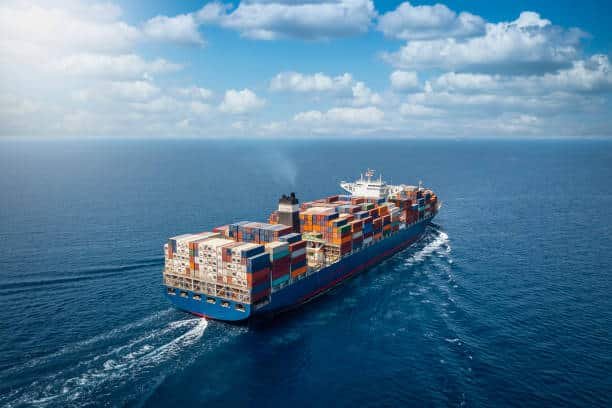
Sea Freight Solutions
Medium or less consignment shipments to Djibouti from China are best arranged with roll-on roll-off and containerized sea freight, while large shipments should go by bulk transport.
Full Container Load (FCL) FCL shipping works well for big shipments because containers are used solely by one customer, speed up delivery and cut down risks of handling goods. Shipments between China and Djibouti are mostly sent using 20ft and 40ft containers and High Cube containers for light but space-occupying goods are the fastest growing choice.
Less than Container Load (LCL) Because LCL lets smaller freight firms collaborate, LCL makes it possible to ship internationally at less cost. Guanwutong and other logistics companies provide top-quality LCL consolidation for the route.
Roll-on/Roll-off (RoRo) ships are for handling cars, ships and huge machines, while both Break Bulk Cargo and Project Cargo services are suitable for irregularly shaped items.
Specialized Container Options
Different kinds of containers are available on the China-Djibouti line to suit the needs of those shipping goods. For food and other perishable items, Refrigerated containers are used, whereas Open Top and Flat Rack containers carry cargo that is too large for the normal container.
Alternative Transportation Methods
Sea freight is handled most of the time on the China-Djibouti corridor, while air freight gives the fast option for speedy and high-value items. Yet, the expenses are so high that air freight is mainly chosen for goods that must arrive quickly or are expensive compared to how much they weigh.
Multimodal transportation systems that use both sea and land methods are flexible and may be cheaper for detailed logistics needs.
Shipping Routes and Transit Times

Primary Sea Routes
China to Djibouti freight ships usually take the southern route through the Strait of Malacca, Indian Ocean and Arabian Sea to reach the Red Sea. This means the usual day count is between 18 and 25 based on the original port and any extra stops at other facilities.
The most direct routes make transits quickest and major companies provide frequent flights from Shanghai, Guangzhou and other big Chinese ports to Djibouti. Usually, these services take place each week or every second week.
There may be points in the Transshipment Routes where vessels are sent to hubs such as Singapore, Dubai or Jeddah. It may take more time to get there, though these routes usually allow more flexible travel plans and may be less expensive.
Factors Affecting Transit Duration
There are different reasons that can influence the speed of shipping between China and Djibouti.
- The arrival of monsoon seasons and busiest periods for shipping often have an effect on schedules.
- When ports are extremely busy due to many shipments, it can bring about delays
- Bad weather in these regions may delay sailing times or cause other schedule changes.
- Changes in the schedules from shipping companies can happen due to the amount of demand and work involved
Knowing these factors helps shippers arrange things better and know when shipments will be delivered.
Shipping Costs and Pricing Structure
Freight Rate Components
Many factors contribute to the shipping costs from China to Djibouti and shippers need to be aware of all of them.
Costs for shipping with basic Ocean Freight are set by the size of the container, the weight of your goods and demand for spaces at the time. Seasonality causes rates to go up and down and periods of high demand usually cause the prices to be higher.
Any changes in fuel costs due to the Bunker Adjustment Factor (BAF) can greatly affect the final shipping bill in moments when oil prices are not stable.
By using the Currency Adjustment Factor (CAF), carriers can handle the risks caused by fluctuations in famous currency rates.
Additional fees, referred to as Peak Season Surcharges, are added when Chinese New Year and similar holidays raise demand for shipping which limits the number of spaces available.
Additional Charges and Fees
Aside from the usual freight rates, shippers have to account for different types of additional fees.
- There are Terminal Handling Charges (THC) that need to be paid at the loading and unloading ports.
- Funds paid for filing and processing documents with the shipping and customs services
- Sometimes you will be required to pay Container Inspection Fees.
- Transit insurance rates to keep your cargo safe
Working with a logistics provider like Guanwutong makes it easier to spot all potential costs before they become a problem.
Cost Optimization Strategies
Those who do well in shipping often apply diverse tactics to reduce their spending on shipping.
- Using bulk shipping to secure great rates because of volume discounts
- Make an effort to schedule orders between seasons to skip paying the higher fees for peak seasons.
- Using more than one shipping line to benefit from their competitive pricing.
- Turnkey offers long-term agreements with leading carriers to provide steady and dependable charges.
Documentation and Customs Procedures
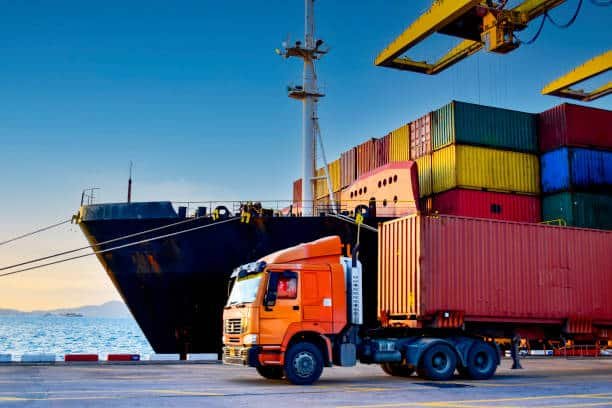
Required Export Documents from China
Appropriate paperwork is important for a trouble-free passage of goods and their delivery. For exports, you should collect certain important documents when planning to ship goods to China such as:
- The Commercial Invoice gives information about the items, its value, as well as the sale terms.
- Freight carrying detailed information and arrangements for loading your items in containers
- Document that proves the location of where the goods were made
- An export license is necessary when you are dealing with restricted or controlled goods.
- Inspection Certificates are given to goods that go through quality or safety checks.
Djibouti Import Documentation
To import goods to Djibouti, you need to have several necessary papers.
- A Declaration must be submitted to the customs offices in Djibouti.
- Bill of Lading acts as evidence of the shipment and of the ownership of the goods.
- This form is meant for grounding duty requirements.
Customs Clearance Process
Getting goods shipped between China and Djibouti involves sending them through export clearance in China and import clearance in Djibouti. Most of the export-related documents are processed via the Single Window system and the whole Chinese export customs process is smoother than in some other countries.
Because of new technology used by customs, importing goods in Djibouti has become smoother, but experts or local contacts are still helpful for managing any tough needs.
Regulatory Compliance and Standards

Import Regulations in Djibouti
Shippers must know and obey the import regulations that Djibouti has put in place. Specific objects are unauthorized or subject to restrictions which call for obtaining particular permits or licenses. The types of items usually not allowed are weapons, dangerous chemicals and things that can harm either health or security.
International Standards Compliance
Shipments are subject to different international rules, especially IMO rules for hazardous materials, packaging regulations for international transport and rules concerning the environment.
It is important to assign correct HS codes for proper taxation and compliance with rules. Working together with trusted customs brokers or logistics groups guarantees that products are correctly designated and meet all rules.
Logistics Service Providers and Partners
Major Shipping Lines
There are several big airline companies that have regular flights between China and Djibouti.
COSCO Shipping which is the national flag carrier, provides a wide range of services at fair prices and reliable times. Thanks to their wide network and the backing of the Chinese government, many choose them for shipping goods from China.
The company ensures excellent reliability and a wide range of services, although it costs more than a few others in the industry.
CMA CGM, MSC (Mediterranean Shipping Company) and Hapag-Lloyd provide continuous services at different schedules and with unique pricing.
Freight Forwarders and Logistics Providers
It is the experienced freight forwarders who make sure China-Djibouti shipments go smoothly. Organizations such as Guanwutong provide all kinds of assistance in this trade route, from handling documentation to handling customs clearance and following shipments.
When supply chain management is complicated, 3PLs offer combined transportation, warehousing and distribution options that are beneficial.
Risk Management and Cargo Insurance

Common Shipping Risks
Shipping items through the China-Djibouti route, although usually secure, brings certain dangers that merchants should notice.
Some of the Maritime Risks are severe weather, vessels breaking down and risk of pirate attacks in the Indian Ocean and Red Sea, but thanks to increased international navy patrols, these acts are now less frequent.
Threats and challenges in politics or economy in this region can at times disrupt shipping timings and port operations, but as Djibouti is politically stable and has strong China ties, these issues do not affect the region much.
Cargo-Specific Risks can happen to specific items and be caused by condensation, differences in temperature or rough treatment.
Insurance Options and Coverage
Various risks while cargo is being transported can be protected by comprehensive cargo insurance. Only total loss is usually covered by basic insurance, but a comprehensive policy includes partial losses, damage and theft as well. Sometimes, particular coverage is needed for valuable or easily damaged goods.
Before shipping, try to understand insurance language and learn the steps for making claims to avoid troubles during shipping.
Packaging and Container Loading Best Practices
Packaging for African Markets
Since the air condition on the China-Djibouti route is hot and humid, packaging should include extra protection against falling or harsh handling. Having well-insulated packaging, appropriate airflow and durable builds makes it possible for cargo to be undamaged during delivery.
Container Loading Optimization
When things are loaded effectively into containers, both space and cargo are well protected. How cargo is distributed, how it is held in place and in which sequence it is loaded can influence its safety and the speed of unloading. The presence of a loading supervisor helps ward off any damage and makes the best use of the containers.
Technology and Tracking Solutions

Modern Cargo Tracking Systems
The shipping industry now has better observation and tracking abilities than before. Shippers are informed at every step because of GPS-powered container tracking, live updates on vessel location and automatic notification of key milestones in a shipment.
With digital solutions from Guanwutong and other carriers and logistics providers, it becomes simpler to handle several shipments and link with relevant parties.
Documentation Management
Processes for paperwork are made easier and fewer errors happen with electronic systems. Electronics systems for billing, customs paperwork and updates speed up operations and reduce the waiting times for goods.
Overcoming Common Challenges
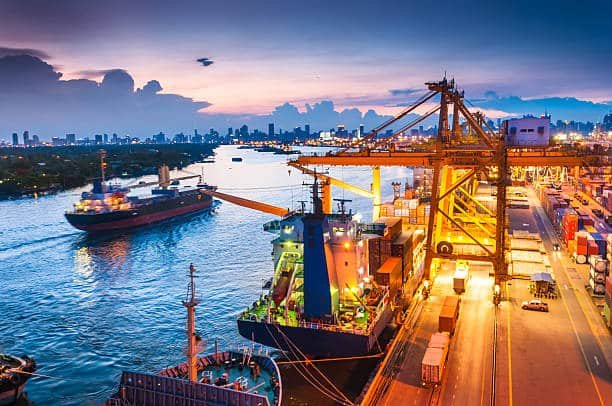
Infrastructure and Operational Challenges
Even though things have changed for the better in Djibouti, congestion or not having the needed equipment may still lead to delays. Extra time for deliveries and staying flexible help deal with these problems.
Communication and Cultural Considerations
At times, the language someone uses and their culture can make shipping arrangements more difficult. Having local partners and freight forwarders who are used to business in China and Djibouti makes operations run smoothly.
Payment and Currency Management
Dealing with payments in more than one currency and with several banks calls for detailed preparation. It is good to understand local financial habits and how businesses are banked, as that boosts the chances of smooth transactions.
Future Trends and Developments
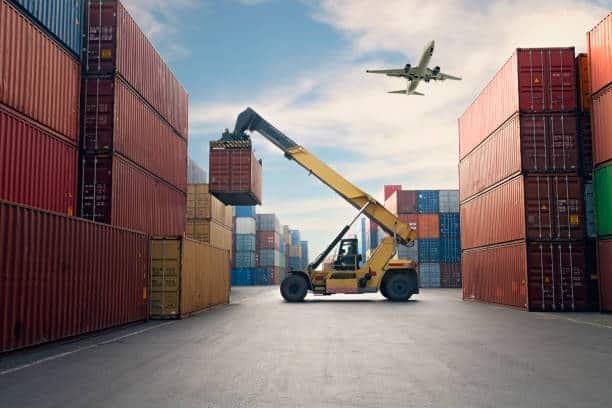
Digital Transformation
On the China-Djibouti route, shippers take advantage of the latest tools such as blockchain-based papers, artificial intelligence for maps and IoT tags that keep track of cargo.
Sustainability Initiatives
Environmental factors are influencing shipping which has led carriers to switch to cleaner fuels, buy better ships and join carbon reduction programs. Environmental factors have grown in importance when shippers choose their logistics partners.
Infrastructure Expansion
Ultimate progress in shipping will come as planned projects finish in China and Djibouti. The enhancements of the port, better roads and bigger free trade areas will make the corridor more capable.
Resources and Support Services

Government and Industry Support
The government and various trade organizations give China-Djibouti trade support through export loans, trade updates and information on regulations. Financial aid for companies is provided by the China-Africa Development Fund and other similar drive funds.
Professional Services
Services that specialize in trade with China and Africa guide companies just entering the market. They cover support for entering the market, assistance with daily operations and help with following rules and laws.
Trade shows, seminars and online courses help companies keep up with any new rules and standards for China-Djibouti shipping.
Conclusion
Shipping products from China to Djibouti gives businesses in the China-Africa trade field both chances and difficulties to overcome. You need to know all about filings, rules, choosing the right carrier and handling risks to have a successful route.
Thanks to China’s strategic partnership with Djibouti and increased investment, the growing amount of trade in this area supports more growth. Without a proper knowledge of the route and the help of reliable partners from Guanwutong, companies may not do as well in this unstable market.
Whether you have shipments of electronics from Shenzhen, machinery from Shanghai or textiles from Guangzhou, taking care of the details, papers and finding trustworthy partners helps your cargo get safely to Djibouti. By making improvements and adding more technology, the route will stay important for companies targeting East Africa.
You will achieve success with the help of preparation, partnership and persistence. The advice in this guide together with help from experienced logistics professionals can help you expand your business successfully in African countries.
Related Reading: Shipping from China to Somalia

